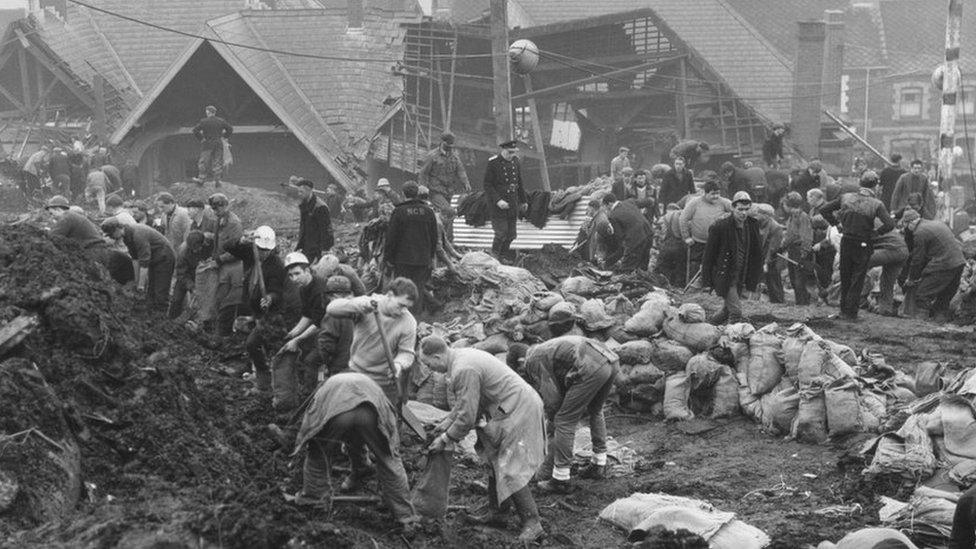Aberfan disaster: 50th anniversary marked with silence
- Published
Survivors recalled hearing the roar of the landslide that would kill 116 children
Wales fell silent on Friday as the country remembered the Aberfan disaster 50 years ago.
On 21 October 1966, a mountain of coal waste slid down into a school and houses in the Welsh village, killing 144 people, including 116 children.
A day of events to commemorate the disaster included a service at Aberfan Cemetery at 09:15 BST on Friday.
Prince Charles has visited the Aberfan memorial garden and will unveil a plaque in memory of the victims.
Earlier, he visited the Aberfan Cemetery and laid a wreath.
He also attended a reception with the families of some of those who lost their lives, before signing a book of remembrance.
Prince Charles said anyone old enough remembers where they were when they heard the "appalling news" about the Aberfan disaster - saying he was at school in Scotland.
He also read out a message from the Queen and said the spirit of the community proves "even the greatest loss cannot triumph over love".
Prince Charles delivers a heartfelt message from the Queen at an Aberfan reception
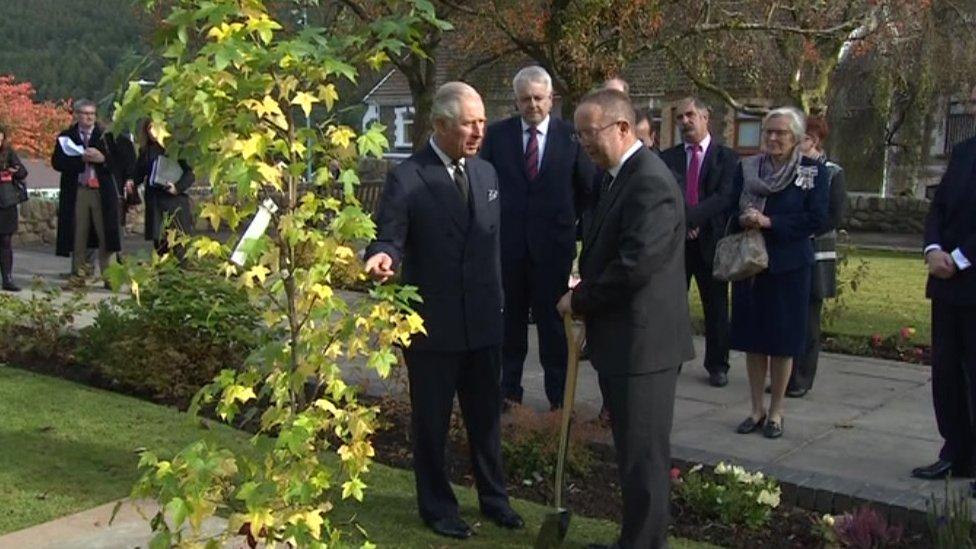
Welsh Secretary Alun Cairns and First Minister Carwyn Jones watch as Prince Charles plants a tree at the Aberfan memorial garden
First Minister Carwyn Jones had called on the people of Wales to pause for the minute's silence.
Prime Minister Theresa May agreed the nation should mark the occasion and remember those who died, when she led tributes in the Commons this week.
Silences were held at all Welsh Government offices, Westgate Square in Newport, Ffos-y-Fran open cast site in Merthyr Tydfil and the University Hospital of Wales, Cardiff, among other places.
Rob Williams of NAHT Cymru, the school leaders' union for Wales, said: "As a country, and as school leaders, we must always remember."
It was at 09:15, five decades ago, the tip gave way and thousands of tonnes of liquefied slurry slid down into Pantglas Junior School and nearby homes.
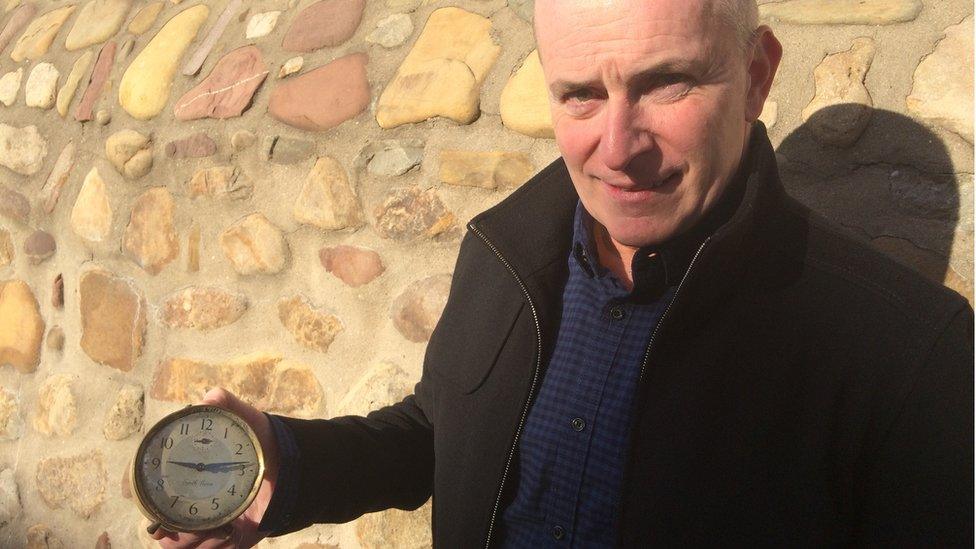
Mike Flynn with a clock his father - one of the rescuers at Aberfan - dug up. It stopped at 9.13am and was used in the inquiry to determine what time the disaster happened
Mike Flynn, from Cardiff, said his father Michael had been a paramedic in the Territorial Army and went to Aberfan to help in the rescue when he saw it on the news.
He dug up a clock and gave it to the police for use in the inquiry but they gave it back to him once it was over, with the clock later passed to Mr Flynn.
He said: "The last time it ticked was in Aberfan when they were all still alive. It stopped at the time 144 people stopped with it. I felt it should be here in Aberfan today."
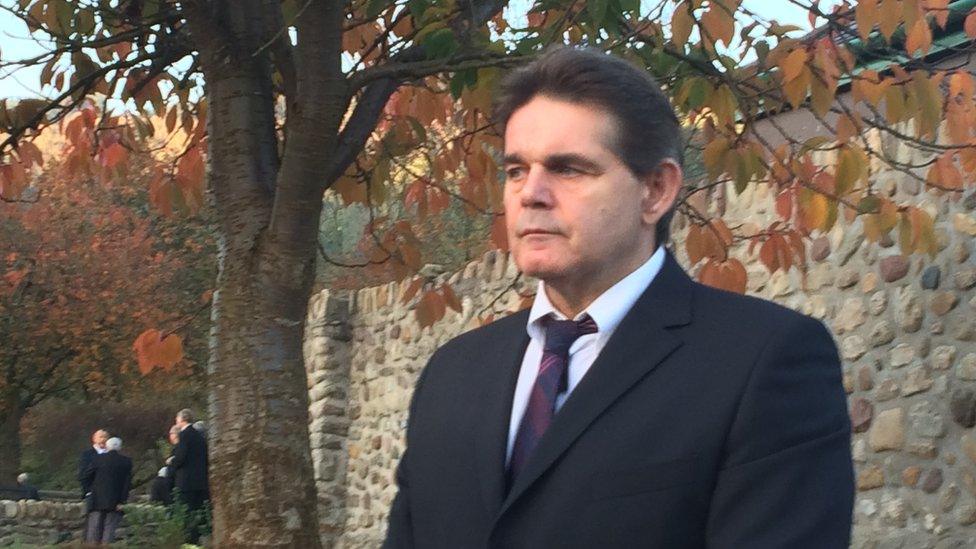
Mr Kirwan said it was only because of his grandchildren he had recently been able to talk about what happened
Gerald Kirwan was eight at the time of the disaster, and was at the school.
"I think Aberfan should never be forgotten. I don't think it ever will," he said.
Gareth Jones was six when the tip came down and he believes he was one of the first survivors to be brought out.
"I'm just thankful I'm here, it was the quick thinking of my teacher that she got us out."
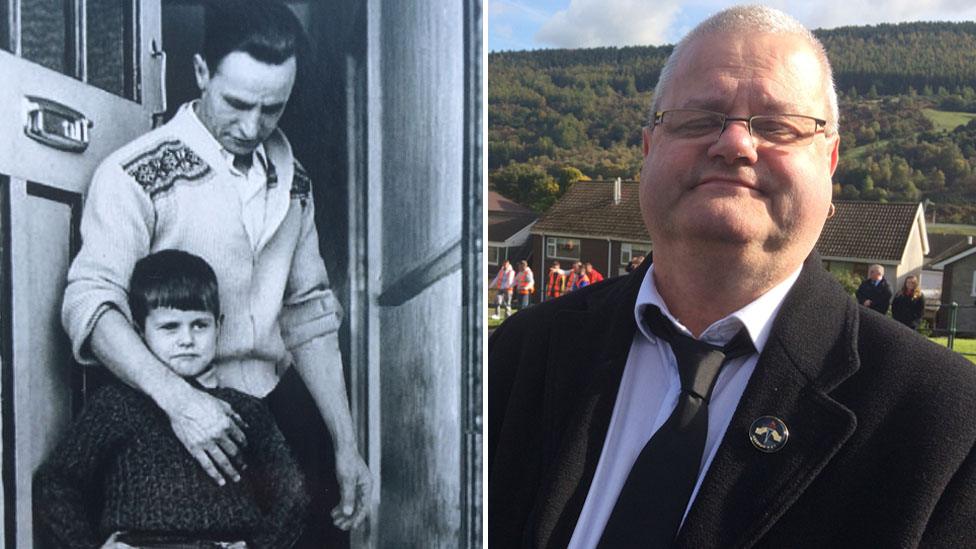
Gareth Jones (pictured left with his father at the time and right now) was six at the time of the disaster
The first minister said the disaster was "one of the darkest days in modern Welsh history".
"Remembrance is important so future generations understand what happened in Aberfan," he said.
"It is a truly heart-breaking moment in our history and no-one who learns about the disaster can fail to be profoundly moved by it."
People around Wales fall silent for a minute to remember Aberfan
The memorial service at the cemetery was led by Father Mark Prevett, with the official laying of wreaths.
Politicians including the first minister and Welsh Secretary Alun Cairns were among those laying wreaths, as well as members of the emergency services.
A service of remembrance was also held at St Margaret's Church, in Mountain Ash at 09:00.
This service, open to all, was organised by Rhondda Cynon Taf council because of the area's strong links with the community of nearby Aberfan.
Coal miners from Mountain Ash and surrounding areas played a vital role during the rescue operation, many being called from their shifts underground to help.
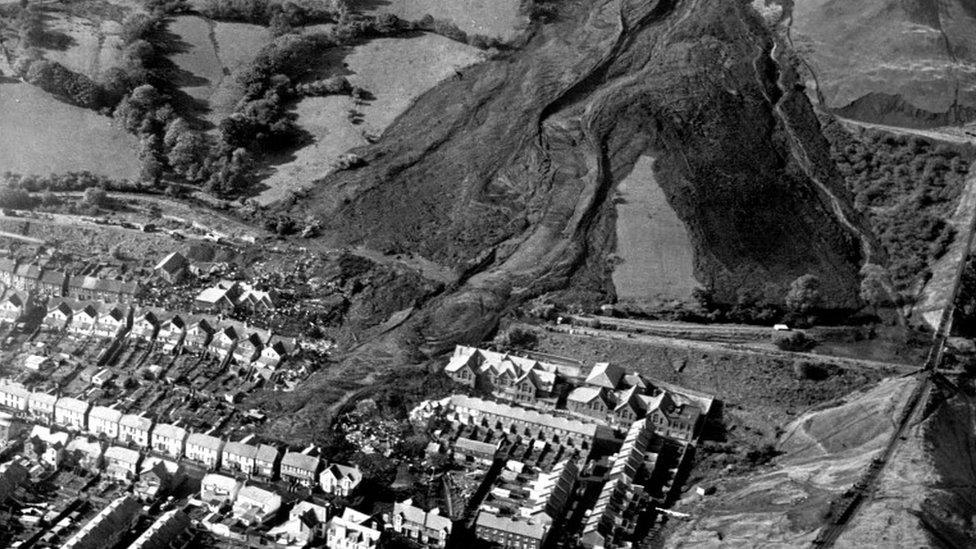
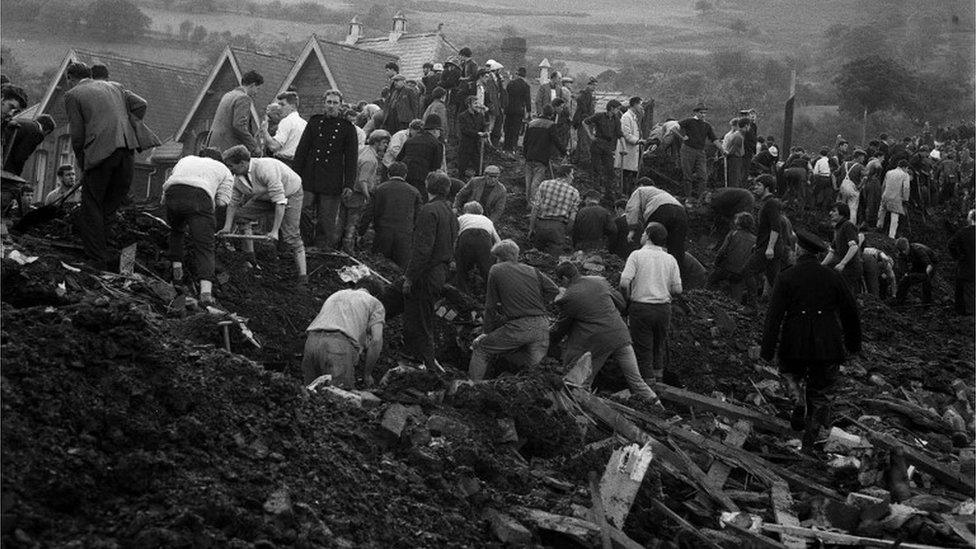
A quarter-peal - 45 minutes of bell ringing - rang out at St Tydfil's Church, in Merthyr Tydfil after the minute's silence. The ringers were selected to be the same age as the children who died would have been today.
The National Assembly is flying its flags at half mast as a mark of respect to the victims, and a book of condolence has been opened in the Senedd.
Further books of condolence will be available for members of the public to sign in Aberfan Library, Merthyr council's civic centre and Cyfarthfa Castle Museum.
Schoolchildren in Aberfan observed a minute's silence
St David's Church in Merthyr, will be open until 16:00 for people to pray or have time for quiet reflection.
At 19:00 there will be a service at St Mary and the Holy Innocents Church in Nixonville, Merthyr Vale, at which the Rev Irving Penberthy, the Methodist minister covering Aberfan at the time, will preach.
The Assistant Bishop of Llandaff, David Wilbourne, who will address the congregation, said: "This is a time for us to come together as a community, sharing grief which is still so sore, despite the passage of time, and giving thanks for the lives of every one of those who died in the disaster."
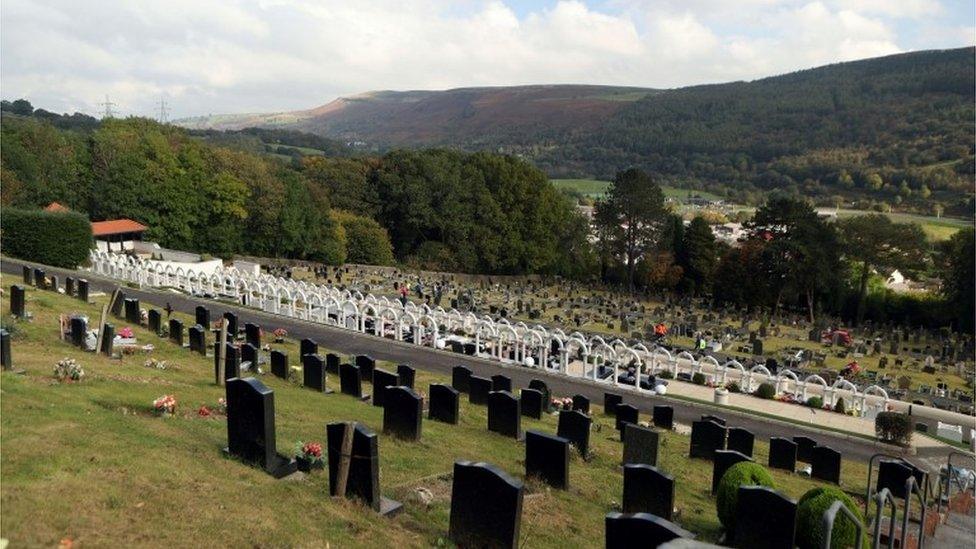
- Published21 October 2016
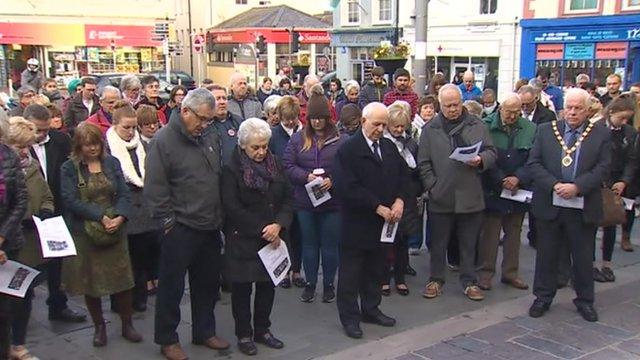
- Published19 October 2016
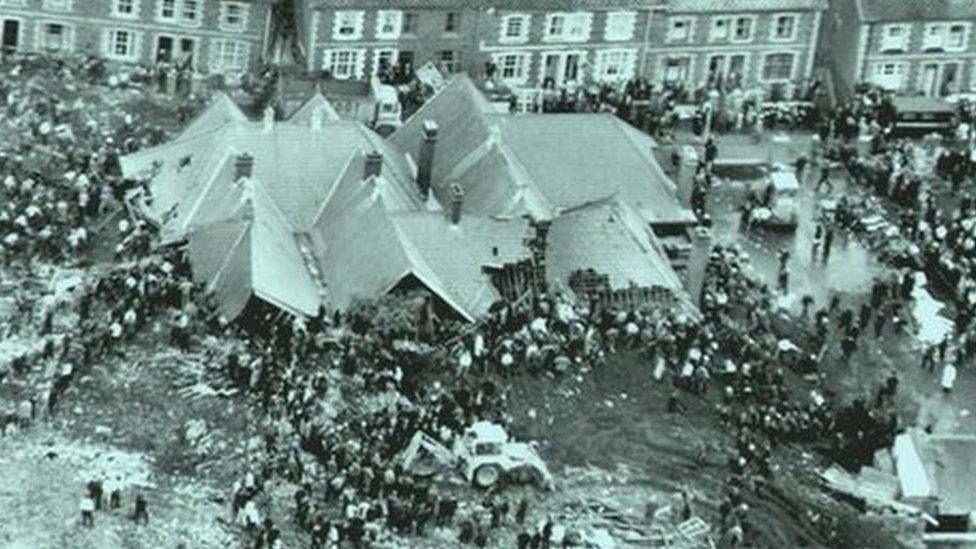
- Published17 October 2016
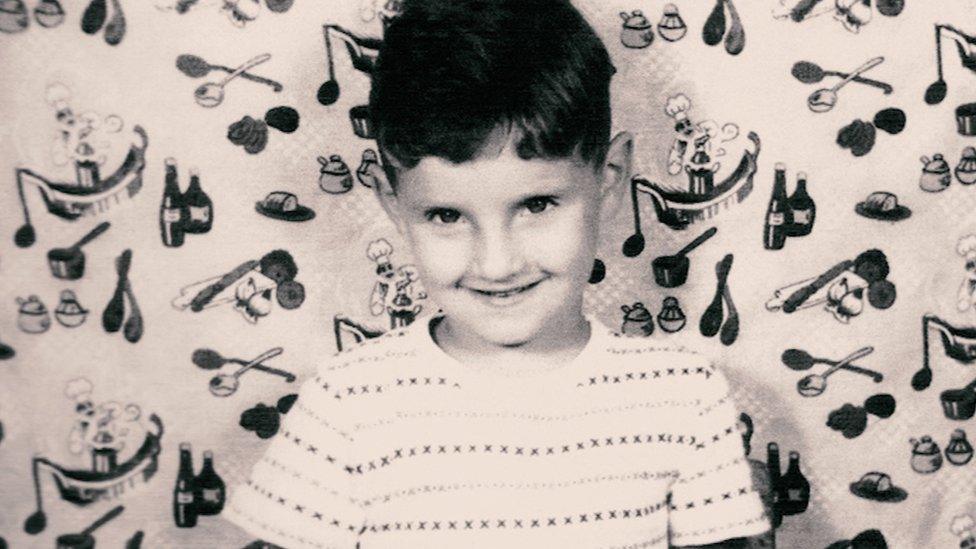
- Published16 October 2016
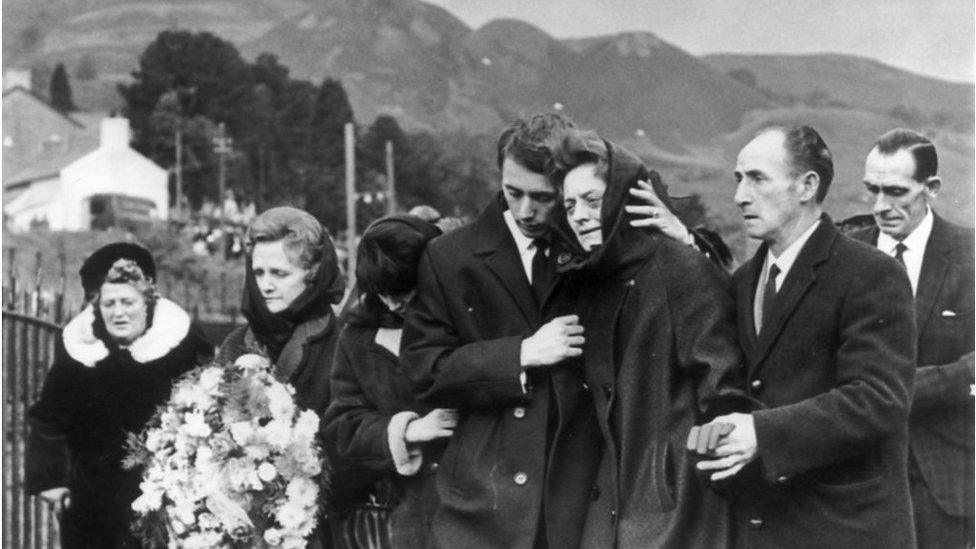
- Published15 October 2016
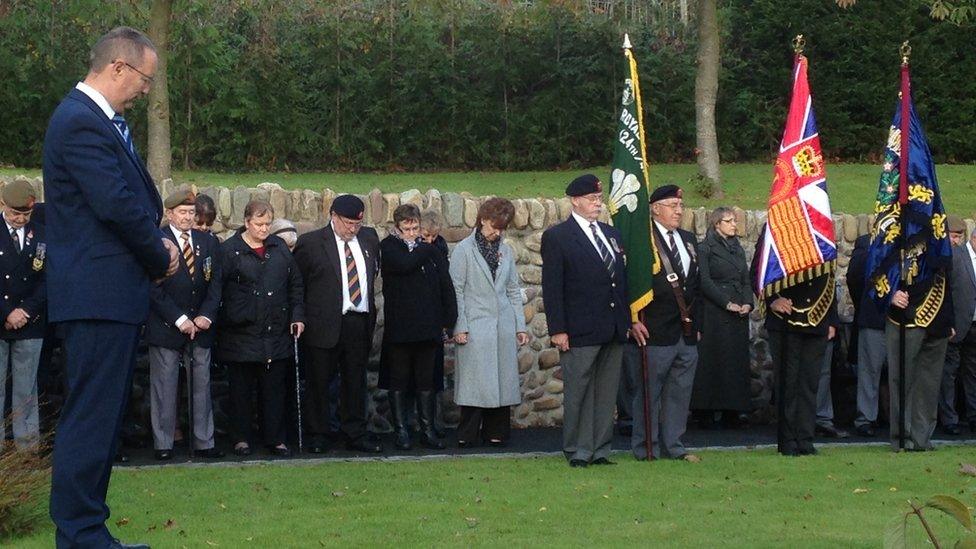
- Published10 October 2016
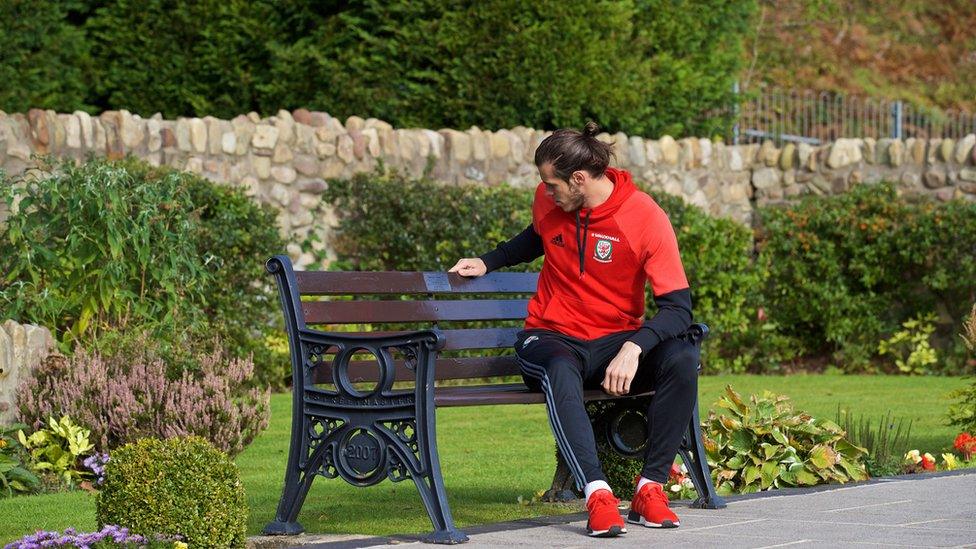
- Published20 October 2016
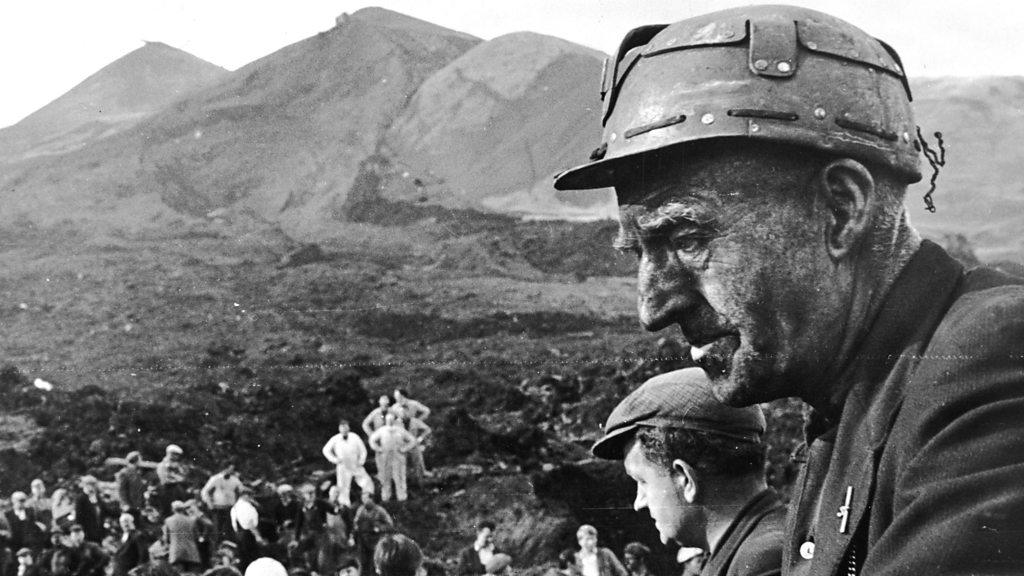
- Published7 October 2016
